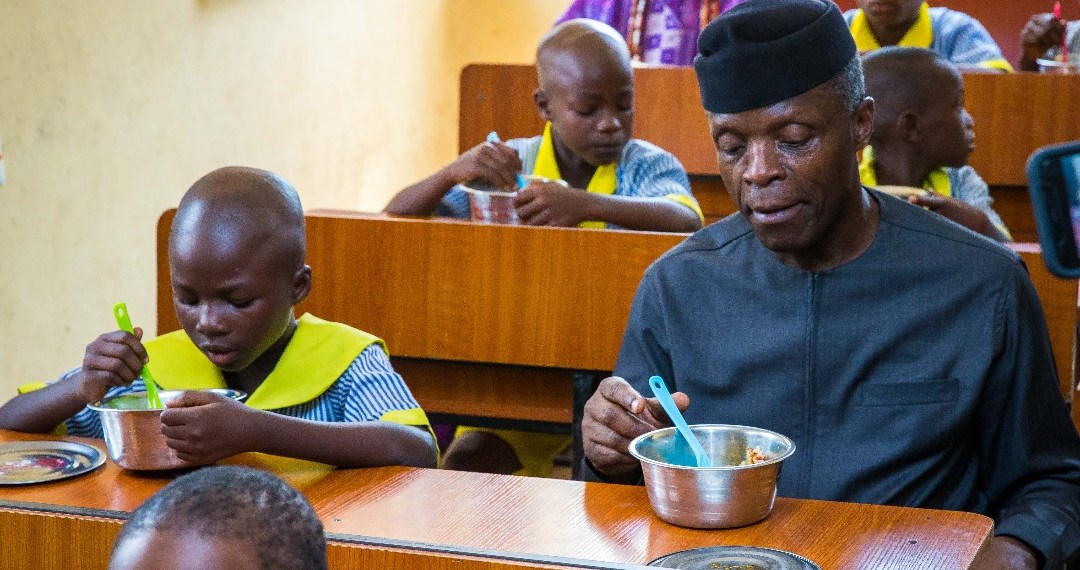The Federal Government has lamented the unending rise in food prices over the last few months, admitting that it is affecting its school feeding programme.
Commenting on this situation, the manager of the National Home Grown School Feeding Programme in Cross River State, Gab Okulaja, said that the rising cost of foodstuffs is harmfully affecting the federal government.
Join our WhatsApp ChannelLast week, Prime Business Africa reported that the Food and Agriculture Organisation (FAO) of the United Nations named Nigeria among 45 countries in need of external assistance for food.
FAO attributed the heightened existing levels of food insecurity to the effects of the COVID-19 pandemic, primarily in terms of income losses.
“we have the challenge of increase in the prices of foodstuffs by as much as 100% and the payment to cooks are the same prices as they have been since 2016/2017 when the programme began,” Okulaja complained.
He advised the government to accommodate pre-primary school classes that were initially not part of the programme.
“There should be a review of meal cost per child to address the rising inflation rate and increase in prices of foodstuffs as this is a major clog in delivering on the programme’s mandate.’’
“There should be a policy change to accommodate early child education, which the programme left out. Since we are embarking on enumeration and expansion, this is an opportunity for the president to direct that children in this group be included,’’ he added.
Okulaja said that a total of 280,000 pupils currently benefit from the programme in 1,000 schools in Cross river.
In June, the president of the Amalgamated Union of Foodstuff and Cattle Dealers of Nigeria (AUFCDN) in Nigeria cried out over insecurity of its members who transports food across the country. The president noted that its members were beaten and robbed of their goods and wares and they might go on strike, if the issue of insecurity in Nigeria is not tackled.
Also in June, in response to what the AUFCDN said, the governor of Kaduna State, El-Rufai raised an alarm over the food crisis in the country. He said it was due to security constraints. He met with the Director of States Commands of the Directorate of State Security (DSS) and how they were going to re-strategize against banditry and other activities in the region.
The low in-flow of foodstuffs within Nigeria has brought about high prices, thereby coming in between the success of the goals and objectives of National Home Grown School Feeding Programme.
The National Home Grown School Feeding Programme, which was introduced by the Federal Government aims to improve the health and educational outcomes of public primary school pupils. It uses farm produce locally grown by smallholder farmers to provide children with nutritious mid-day meals on every school day.
The program is aimed at improving the enrolment of primary school children in Nigeria and reducing the current dropout rates from primary school.

















Follow Us